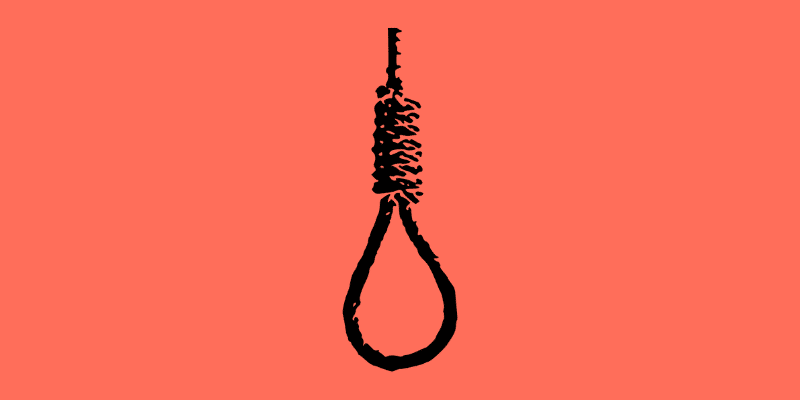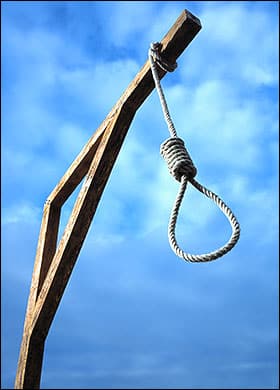 Capital punishment remains and will remain a hot topic across the world. It is not easy to reach a consensus on the question ” Should the death penalty be abolished?”.
Capital punishment remains and will remain a hot topic across the world. It is not easy to reach a consensus on the question ” Should the death penalty be abolished?”.
There are countries which abolished Capital Punishment. There are countries which did not. India is one among the countries where the death penalty exists, but now only for the “rarest of rare cases”.
Let’s see in this article, the major issues and news related to capital punishment and judiciary. Don’t forget to come back to visit this post again as we normally update our articles when SC pass any new observations or guidelines.
Capital Punishment in India Overview
India retains capital punishment for a number of serious offences. But the imposition of capital punishment is not always followed by execution (even when it is upheld on appeal), because of the possibility of commutation to life imprisonment. The number of people executed in India since independence in 1947 is a matter of dispute; official government statistics claim that only about 60 people had been executed since independence.
However, the People’s Union for Civil Liberties cited information from Appendix 34 of the 1967 Law Commission of India report showing that 1,422 executions took place in 16 Indian states from 1953 to 1963, and has suggested that the total number of executions since independence may be as high as 3,000 to 4,300.
In December 2007, India voted against a United Nations General Assembly resolution calling for a moratorium on the death penalty. In November 2012, India again upheld its stance on capital punishment by voting against the UN General Assembly draft resolution seeking to ban the death penalty.
Rarest of the rare case doctrine

There are various sections under IPC (302, 376A etc) and other statutes which award capital punishment for the convict. But the Supreme Court of India ruled in 1983 that the death penalty should be imposed only in “the rarest of rare cases.”
While stating that honour killings fall within the “rarest of the rare” category, Supreme Court has recommended the death penalty be extended to those found guilty of committing “honour killings”, which deserve to be a capital crime.
The Supreme Court also recommended death sentences to be imposed on police officials who commit police brutality in the form of encounter killings
IPC 376A – Rape/Sexual Assault
An amendment in the year 2013 provided for the death penalty in case he inflicts an injury upon woman during rape which causes her death or to be in a persistent vegetative state. The death penalty can also be handed down to repeat rape offenders under the Criminal Law (Amendment) Act, 2013.
Laws other than IPC for Capital Punishment
In addition to the Indian Penal Code, a series of legislation enacted by the Parliament of India have provisions for the death penalty.
- Commission of Sati (Prevention) Act, 1987: Part. II, Section 4(1).
- Scheduled Tribes (Prevention of Atrocities) Act, 1989: Section 3(2)(i).
- Narcotic Drugs and Psychotropic Substances (NDPS) Act.
Clemency and Mercy Petition in the Indian Constitution
After the award of the death sentence by a sessions (trial) court, the sentence must be confirmed by a High Court to make it final. Once confirmed, the condemned convict has the option of appealing to the Supreme Court.
Where the condemned prisoner is unable to appeal to the Supreme Court; or where the court either refuses to hear the appeal or upholds the death sentence, the prisoner also has the option of submitting a ‘mercy petition’ to the President of India and the Governor of the State.
Who grants pardon? The President?
Article 72(1) of the Constitution of India states:
The President shall have the power to grant pardons, reprieves, respites or remissions of punishment or to suspend, remit or commute the sentence of any person convicted of any offence where the sentence is a sentence of death.
Despite the language of the constitutional provisions, clemency is exercised not by the President but by the government.
For all practical purposes, the decision on a mercy petition is arrived at within the MHA as the subject has been allocated to the Department of Home, MHA vide the second schedule of the Government of India (Allocation of Business) Rules 1961. Once a convict submits a mercy petition to the President, the Rashtrapathi Bhavan forwards the petition to the Ministry of Home Affairs, for seeking the Cabinet’s advice on the matter.
The MHA then forwards the same to the concerned State Government for eliciting its views.
It is only then the MHA formulates its advice and tenders it to the President, on behalf of the Council of Ministers).
A memorandum on the case is prepared by a junior official in the Ministry and on the basis of the same, a Joint Secretary or an Additional Secretary ‘recommends’ a decision to commute the death sentence or reject the mercy petition. This ‘recommendation’ is considered by the Minister of Home Affairs who makes the final ‘recommendation’, on behalf of the Cabinet of Ministers, to the President.
Article 74(1) provides the President with only one opportunity to return the ‘recommendation’ for the decision to be reviewed. If no change is made, the President has to sign his assent.
PS: The Constitution doesn’t have any maximum time-limit within which a mercy petition has to be decided. There have been instances of mercy petitions lying with the President for over a decade without any decision being taken. The MHA can’t ask the President to speed up the process. Similarly, a mercy petition may get delayed at MHA or state level too.
Is everything over, once the President rejects the mercy petition and signs his assent?
No.
Things are not over here.
There is still hope for the convict.
President’s pardon/rejection/delay is also subjected to judicial review. Delay in deciding mercy plea is a relevant ground for commuting the death sentence to life imprisonment. This is what happened in the recent Shatrughan Chauhan vs Union of India case.
The Supreme Court has also directed all prison authorities to give a gap of 14 days between intimation of the rejection of mercy petition to the condemned prisoner and his actual execution. In this time period, the convict can seek judicial redress of grievances against the rejection of mercy plea. Also note that if the President grants an unfair pardon, SC can overrule it.
So the long route of capital punishment can be summarized as follows :
- Trail court awards death sentence.
- High court confirms it.
- Supreme court confirms it on appeal.
- Mercy petition filed to President of India.
- President of India forwards it to Ministry of Home Affairs.
- Ministry of Home Affairs routes it to the state concerned.
- State lets MHA know its advice.
- MHA forwards its recommendation to the President of India.
- The President of India rejects that advice and asks MHA to reconsider it.
- MHA submits its recommendation again.
- The President of India signs it. Mercy is denied.
- The convict can ask for Judicial review.
- The Judicial review verdict is final.
Highlights of recent SC judgement on Mercy Plea (Shatrughan Chauhan vs Union of India)
The following are the 12 guidelines issued by the Supreme Court bench comprising Chief Justice P. Sathasivam, Justice Ranjan Gogoi and Justice Shiva Kirti Singh on various procedures before executing a death convict.
- Solitary Confinement: (only in last 14 days)
- Legal Aid:
- Procedure in placing the mercy petition before the President:
- Communication of Rejection of Mercy Petition by the Governor:
- Communication of Rejection of the Mercy Petition by the President:
- Death convicts are entitled as a right to receive a copy of the rejection of the mercy petition by the President and the Governor.
- Minimum 14 days notice for execution:
- Mental Health Evaluation:
- Physical and Mental Health Reports:
- Furnishing documents to the convict:
- Final Meeting between the Prisoner and his Family:
- Post Mortem Reports:
Extra articles related to capital punishment worth reading
- The journey of a mercy plea – Indian Express.
- How does the President decide mercy petitions?
- Mercy plea is in the dock – India Today.
- Capital Punishment – Wikipedia.

No comments:
Post a Comment